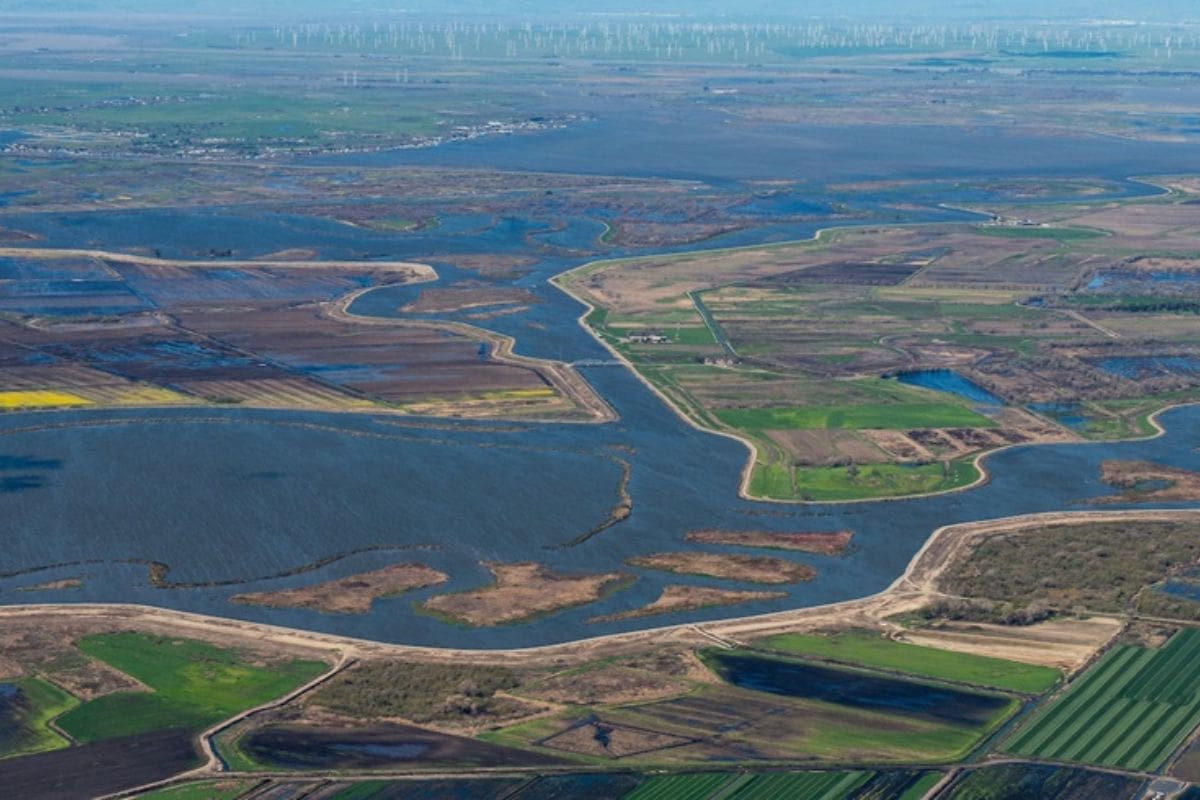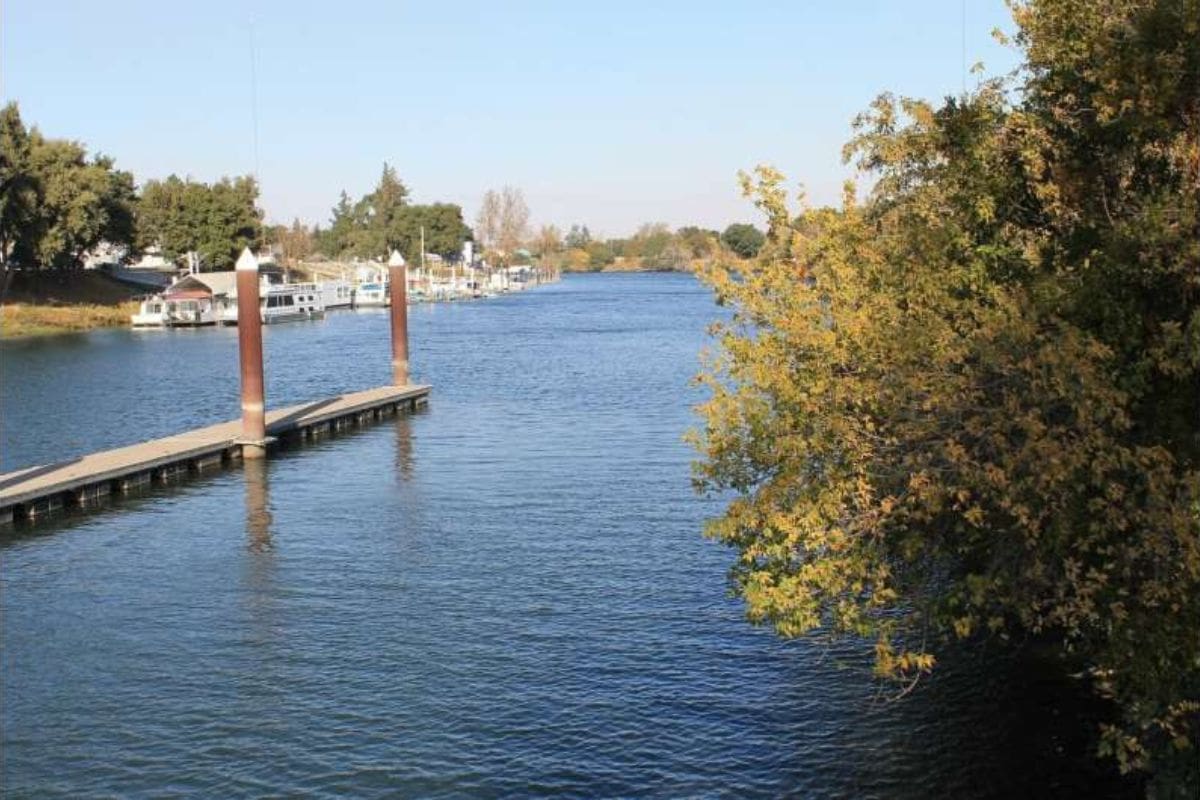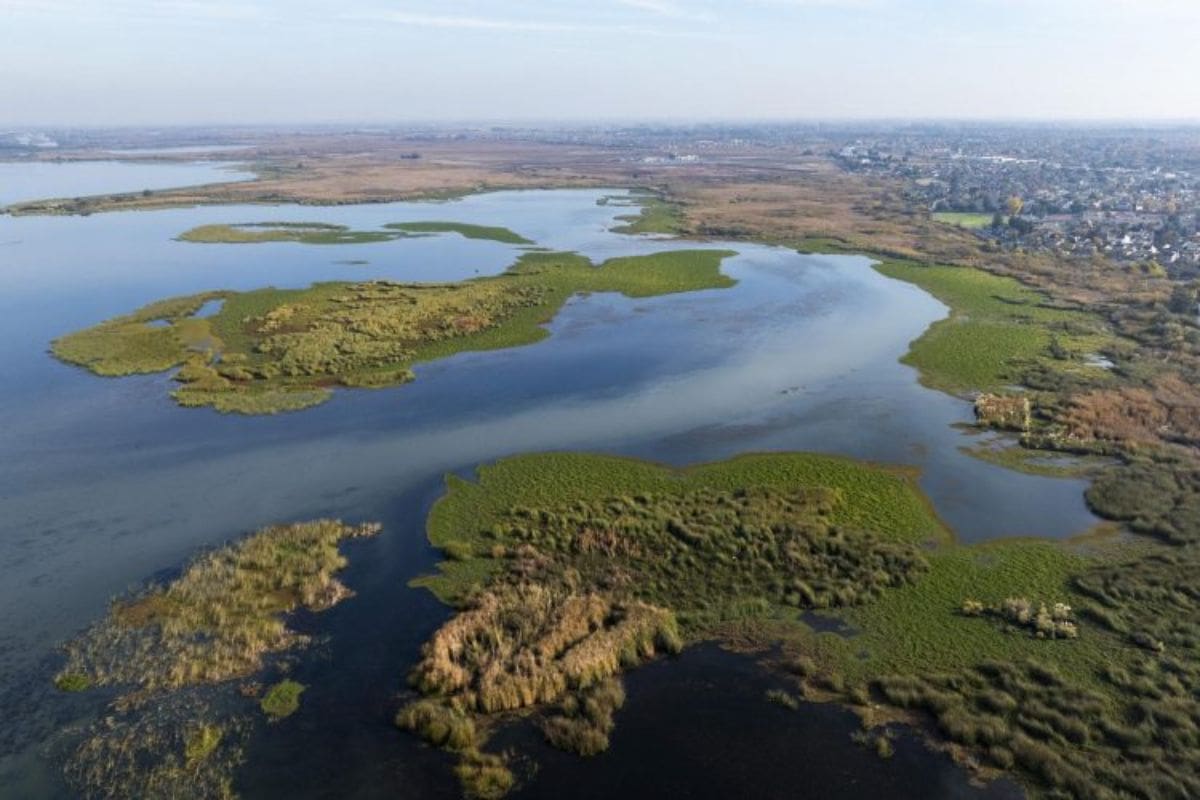California Water Battle: In the arid landscape of California, the Delta Project stands as a symbol of the ongoing struggle to find equilibrium between water supply and environmental preservation.
As proponents champion the project for its potential to enhance water resilience in the state, opponents raise valid concerns regarding the ecological risks and broader environmental impacts that may result.
Amidst this clash of perspectives lies a complex web of uncertainties and debates, shaping the course of California’s water future in ways both profound and contentious.
The Delta Project’s quest for balance serves as a microcosm of the larger battle for sustainable resource management in the Golden State.
California Water Dilemma
Amidst the arid landscapes and bustling cities of California lies a complex water dilemma, where the delicate balance between human needs and environmental sustainability is fiercely debated. At the heart of this challenge is the Sacramento-San Joaquin River Delta, a vital nexus in California’s water infrastructure. The proposed $16 billion Delta Conveyance Project has sparked intense discussions regarding water security and ecological protection in the region.
The Sacramento-San Joaquin River Delta not only supplies water to millions of Californians but also sustains a unique ecosystem that is home to various species of plants and animals. This convergence of diverse interests creates a challenging landscape where competing priorities must be carefully navigated. The contentious debate surrounding the Delta Conveyance Project underscores the complexity of managing water resources in a state prone to droughts and water scarcity.
As stakeholders continue to grapple with finding a sustainable path forward, the need for thoughtful consideration of both human and environmental concerns remains paramount in addressing California’s intricate water dilemma.
Proponents Perspective: Ensuring Water Resilience
In the realm of California’s water management, proponents of the Delta Conveyance Project emphasize the critical need to ensure water resilience in the face of growing demands and climate uncertainties. This ambitious project, championed by Gov. Gavin Newsom’s administration, is designed to tackle the state’s pressing water challenges by enhancing water security, improving seismic resilience, and modernizing the water infrastructure to meet the evolving needs of California’s communities.
- Enhancing Water Security
- Improving Seismic Resilience
- Modernizing Water Infrastructure
Advocates argue that by investing in the Delta Conveyance Project, California can better prepare for future water scarcity issues, mitigate the impacts of climate change on water resources, and ensure a reliable water supply for both urban and agricultural users. This approach is seen as a proactive step towards building a more sustainable and resilient water system that can withstand the challenges of the 21st century.

Opponents Concerns: Ecological Risks and Environmental Impact
Critics of the Delta Conveyance Project express grave concerns regarding its potential ecological risks and environmental impact, focusing on the delicate balance of the delta’s ecosystem. They fear that the project could lead to increased salinity levels, degraded water quality, and pose significant threats to endangered species within the delta. Opponents emphasize the need to consider alternative solutions that prioritize levee improvements and natural floodplain restoration to ensure the preservation of the delta’s ecological health.
The critics argue that the construction and operation of the Delta Conveyance Project could disrupt the intricate ecological dynamics of the delta, causing irreparable harm to the diverse habitats and species that depend on its fragile ecosystem. They advocate for a more holistic approach that takes into account the long-term sustainability of the delta region, highlighting the importance of mitigating potential negative impacts on wildlife and water quality. As the debate continues, finding a balance between water management needs and environmental conservation remains a key challenge in the ongoing discussions surrounding the project.
Uncertainty and Debate: Navigating Complexities
Navigating the intricate web of uncertainties and debates surrounding the Delta Conveyance Project requires a delicate balance between competing interests and regulatory considerations. As policymakers grapple with the complexities of this water management endeavor, several key points come to light:
- Legal Challenges: The project faces legal hurdles that add layers of uncertainty to its implementation. Resolving these legal disputes is essential for moving forward effectively.
- Stakeholder Perspectives: Diverse stakeholders, including environmental advocates, agricultural interests, and urban communities, hold varying views on the project’s impacts. Understanding and reconciling these perspectives is crucial for fostering consensus.
- Technical Complexity: The project’s technical aspects, such as engineering requirements and environmental assessments, contribute to the overall complexity. Ensuring that these technical components align with regulatory standards is paramount for the project’s success.
Conclusion: Shaping California’s Water Future
Amidst the intricate tapestry of legal challenges, stakeholder perspectives, and technical complexities surrounding the Delta Conveyance Project, the imperative task at hand is to chart a course towards a sustainable and resilient water future for California.
The decisions made regarding this project will have lasting effects, shaping the state’s water landscape for years to come. The implications are far-reaching, impacting communities, agriculture, and the environment statewide.
As various stakeholders passionately advocate for their positions, finding common ground becomes crucial. Balancing competing interests and priorities will be key in ensuring that California’s water resources are managed responsibly and equitably.
Collaboration, informed by scientific expertise and a comprehensive understanding of the diverse needs of the state, will be essential in navigating the complexities of water management. Ultimately, the goal is to secure a reliable water supply for all Californians while safeguarding the health of ecosystems and promoting sustainable water use practices.
The path forward requires thoughtful consideration, strategic planning, and a shared commitment to shaping a water future that is both prosperous and resilient.


ALSO READ: Beijing Hinders Efforts to Boost Academic Exchanges, State Department Officials Report
News in Brief
California faces a critical dilemma with its Delta Conveyance Project, aiming to balance water supply needs and environmental concerns. Proponents tout its potential for resilience against climate uncertainties, while opponents fear ecological risks. This clash underscores the complexity of managing water resources in the state, especially in the Sacramento-San Joaquin River Delta. Legal hurdles, diverse stakeholder views, and technical complexities add layers of uncertainty. The project’s outcome will shape California’s water landscape, impacting communities and ecosystems statewide. Finding common ground amidst passionate advocacy is crucial for a sustainable water future.”

